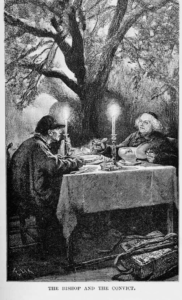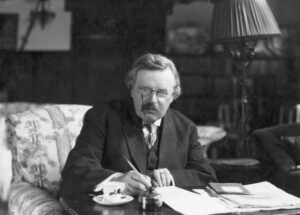In his review in the New York Review of Books of the fourth volume of Robert Caro’s epic biography of Lyndon Johnson, Garry Wills focused on the relationship between Johnson and Robert Kennedy. It was, in Wills’ words, “a study in hate … radiating reciprocal hostilities at every step in the story.” Their interactions were “venomous.”
“I doubt that Caro, when he began his huge project, thought he would end up composing a moral disquisition on the nature of hatred. But that is what, in effect, he has given us,” writes Wills.
Hate is a complicated topic. For one thing, hate itself is not in every instance wrong. The Hebrew Bible makes it clear that there are things that God Himself hates (see Proverbs 6:16-19 for more). But for those of us who are mortal, hate can be a destructive thing.
Its wellsprings vary, from sadism to an irrational aversion to someone or some group of people (which often manifests itself as racial or ethnic prejudice) to a response based on fear, injury, or having been on the receiving end of a great injustice. A father, for example, will probably feel hatred for a person who harms his child, for reasons we can easily identify with. But the revulsion and rage between Johnson and Kennedy was far less understandable and much pettier. And in many ways it consumed them. They attempted to humiliate and destroy one another.
Bobby had tried to keep Johnson out of the White House. Johnson, returning the favor, will try to keep Bobby out of burial beside his brother in Arlington. The hatred had reached depths where it amounted to kicking a corpse. It is disheartening to see such large men reduced to such petty furies.
The great danger of hatred, Wills points out, is that there is a continual ratcheting up, with one hostile act provoking another. Hate is a great magnifier of its object; it “narrows what one wants to see, or is able to see, in order to keep one’s hatred tended and hard.”
The object of the hate is often turned into a one-dimensional figure, a caricature, and a child of darkness. That’s how we often justify our attitude, taking a destructive emotion and bestowing on it the patina of righteousness. How can anyone not hate individuals who possess no redeeming qualities, who are themselves the personification of evil? But of course that is rarely the case, and it was certainly not the case when it came to LBJ and RFK. They, like most of us, were an uneven mix of admirable and dishonorable qualities.
The irony of hatred is that it often ends up destroying the person doing the hating.
In a 1962 address to the National Press Club, Martin Luther King, Jr.—a contemporary of both Johnson and Kennedy—took up this topic. “Hate is always tragic,” he said. “It is as injurious to the hater as it is to the hated. It distorts the personality and scars the soul.” Years later King would say, “I’ve seen too much hate to want to hate, myself, and I’ve seen hate on the faces of too many sheriffs, too many white citizens’ councilors, and too many Klansmen of the South to want to hate, myself; and every time I see it, I say to myself, hate is too great a burden to bear.”
Some individuals harbor hatred in their hearts, I think, because they’ve convinced themselves that they need to be the dispensers of justice or malevolent people will never suffer for their offenses. But to act as judge and jury in life is a burden we’re not particularly well equipped to carry. And the wise among us will take some comfort in these words: “It is mine to avenge,” saith the Lord. “I will recompense.” The belief that in the end there is an accounting, that justice is done and that all things are set right relieves us of the pressure of trying to right every wrong.
A final word about personal forgiveness. As I understand the concept, forgiveness doesn’t mean pretending an injustice didn’t occur. It means granting free pardon and giving up all claim on account of an offense. This isn’t easy, in part because it’s counterintuitive, particularly when a betrayal or grave wrong has taken place. But the effects of forgiveness can also be liberating. Those who can offer grace provide healing to those who receive it, and to those who offer it. If hate is a zero-sum game, then genuine forgiveness is the opposite. It can help and heal both sides. It can repair brokenness in our lives and in the lives of others. Nor is forgiveness the abandonment of justice. From my observations of those whose lives are characterized by grace, it comes from recognition that they have received mercy in their lives and are therefore able to dispense it to others.
“Ungrace causes cracks to fissure open between mother and daughter, father and son, brother and sister, between scientists, and prisoners, and tribes, and races,” the author Philip Yancey has written. “Left alone, cracks widen, and for the resulting chasms of ungrace there is only one remedy: the frail rope-bridge of forgiveness.”
The bridge of forgiveness is one neither Lyndon Johnson nor Robert Kennedy were ever able to build. And they were both lesser men because of it.
Peter Wehner is a senior fellow at the Ethics and Public Policy Center.

